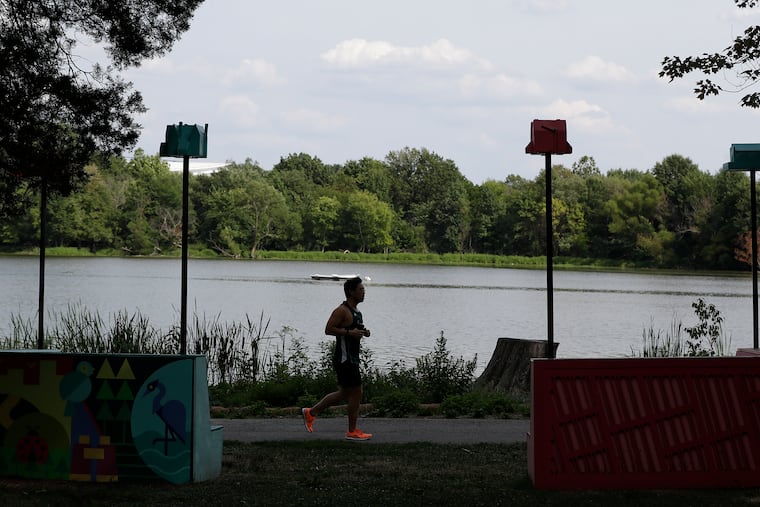City agrees to hold off on cutting FDR Park heritage trees amid lawsuit
“I was afraid if we lost, they’d be cutting down trees this weekend,” said attorney Samuel Stretton, representing residents opposed to the chop.

In a last-minute truce of sorts, attorneys for Philadelphia and the Fairmount Park Conservancy — the nonprofit leading the FDR Park transformation on behalf of the city — agreed to hold off on plans to cut down 48 heritage trees in the park. It’s the latest in a legal back-and-forth to determine the fate of trees deemed to be of ecological significance.
The Conservancy and the Department of Parks and Recreation had been eager to begin work on a new phase of their $250 million reimagining of FDR Park. But this phase has been met with pushback as it calls for cutting the 48 healthy trees to make room for a new water management system, picnic area, parking, and athletic fields.
Removing these heritage trees requires a special exception from the Zoning Board of Adjustment. After a two-part hearing, which included a lengthy public testimony, the board gave the green light in late March to move forward with the plans to cut them. The Packer Park Civic Association and other residents appealed. Roughly around the same time, 11 South Philly residents filed a lawsuit in Orphans’ Court asking a judge to issue an injunction on work across the park, as well as a declaratory judgment stating that the city can’t move forward with the renovation plans.
Last week, Common Pleas Judge Sierra Thomas Street issued the stay and by Monday the conservancy had asked her to reconsider, arguing it would harm residents by “depriving Philadelphians of their enjoyment of a renovated FDR Park” and “cost the taxpayers of Philadelphia substantial sums.”
Friday’s deal upholds the stay on cutting the heritage trees until May 2, when an Orphans’ Court hearing on the lawsuit is scheduled. Attorneys for the conservancy and city did not give any public explanation for the change of heart.
The stakes for Friday’s hearing were high for the civic association and other residents who oppose cutting the trees, which are designated as heritage because they are at least two feet in diameter and of ecological significance because of their species.
“I was afraid if we lost, they’d be cutting down trees this weekend,’ said their attorney, Samuel Stretton.
Friday’s hearing before Thomas Street was narrow in scope and asked if the zoning board had erred. Both sides brought experts, including arborists, watershed specialists, and at least one community leader. By early afternoon, only one witness had testified.
Allison Schapker, the plan’s project manager at the conservancy, raised concerns about how delays could let certain permits elapse before work is completed and affect the project’s funding — she said some state funding requires progress to be made or risks being pulled. But when pressed by Stretton, Schapker said there was no set date for the heritage trees to be cleared and permits wouldn’t expire by May 2.
Still, Parks and Recreation has warned that increased flooding could make much of the 348-acre park unusable. After a yearslong planning process that included public outreach, the department unveiled renderings of a transformed park with a man-made 33-acre wetland that planners say would act as a sponge for the rest of the park. Plans incorporate new trails for hiking and address a field shortage.
The current plan calls for 12 multipurpose fields, six fields for baseball and softball, 10 tennis courts, and eight basketball courts. The fields have become a sticking point. Some are slated to be built on the former golf course, which gained a newfound following among bird watchers, dog walkers, and hikers during the pandemic.
Some park users nicknamed the space “the meadows” and are pushing to keep the space as is.
The past two years have been frenzied with activity for both supporters and critics of the renovation, resulting in a tense standoff where critics were ejected from a public meeting at least once. Beyond concerns about cutting healthy heritage trees, critics of the plan say there are too many fields and they’re not satisfied with the city’s guarantees that the fields will be free of forever chemicals known as PFAS.
In the Orphans’ Court lawsuit, Stretton argues the plans require City Council and court approval because they are looking to radically change the nature of the park.
» READ MORE: South Philly residents sue city, demand injunction on FDR Park makeover
As court adjourned Friday, two residents opposed to the plan let out sighs of relief and rushed to hug each other.